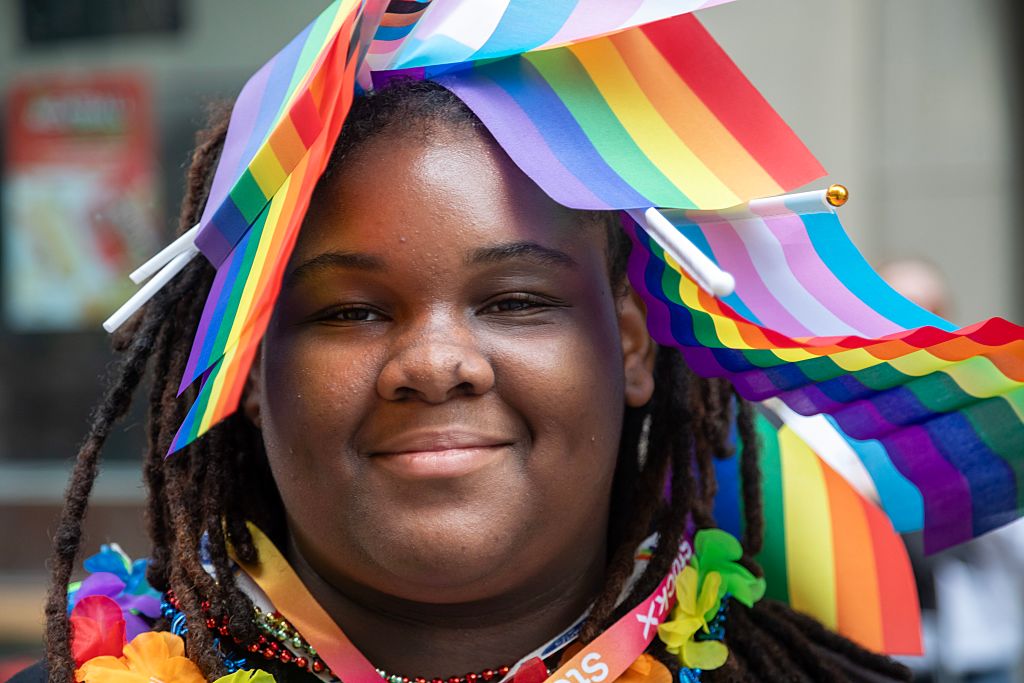After I was a child, I by no means noticed myself within the classroom. Not within the books we learn. Not within the tales my lecturers instructed. Not within the classes about households, love, or group.
As a Black queer boy, I discovered early what it meant to be invisible — to develop up surrounded by silences so heavy they form the way you see your self and what you imagine is feasible. So, a long time later, as an lawyer, after I learn the Supreme Court docket’s ruling in Mahmoud v. Taylor this Pleasure Month — a choice that makes it simpler for folks to drag their youngsters out of public college classes about LGBTQ+ folks — I felt that outdated ache once more. And I do know I’m not alone.
In a 6–3 determination, the court docket sided with households in Maryland who claimed their “sincerely held non secular beliefs” gave them the proper to decide their youngsters out of any lesson that even mentions LGBTQ+ folks or households. The teachings weren’t graphic intercourse ed or “grownup content material.” They have been fundamental, age-appropriate tales acknowledging that queer and trans folks exist. That our households are actual. That our lives matter.
Apparently, to this court docket, our existence is optionally available.
Let’s be clear about what this implies. Public colleges are imagined to be one of many few locations the place younger folks study communities, cultures, and folks completely different from their very own. That’s not radical; that’s the promise of public training. It’s not “indoctrination” to inform the reality. It’s not radical to say that queer and trans folks exist, have all the time existed, and need to be a part of the complete story.
For thus many youngsters — particularly those that develop up in households or communities the place being LGBTQ+ is condemned or erased — the classroom could be the solely place they be taught that they’re not alone. I didn’t have that. I keep in mind scanning my college library cabinets for somebody — anybody — who seemed or liked like me. Nothing. No tales about Black queer boys making an attempt to determine themselves out. No characters who felt like a permission slip to dream a much bigger life. That void shapes you. It makes you’re feeling such as you’re the issue, like your existence is one thing that ought to be edited out.

And what concerning the youngsters who aren’t queer or trans? They deserve the reality, too. They deserve an training that displays the complete, messy, stunning actuality of the world, not a model scrubbed clear to maintain some mother and father comfy of their prejudice. While you decide youngsters out of actuality, you’re educating them that LGBTQ+ individuals are a menace or taboo, as a substitute of neighbors, classmates, and household.
So, no — don’t name this “non secular freedom.” True non secular liberty means we every get to imagine — and exist — with out erasing one another’s humanity. Bigotry wrapped within the language of religion continues to be bigotry. And it has no place in a public college that’s imagined to serve everybody.
It’s not misplaced on me that this determination got here down within the ultimate days of June, when the Supreme Court docket typically releases its most controversial rulings. However for LGBTQ+ folks, that timing stings much more as a result of June is Pleasure Month: a time after we’re imagined to be louder about our tales, our survival, and our pleasure. As an alternative, we’re compelled to look at the best court docket within the nation hand bigots a permission slip to fake we don’t exist. This isn’t nearly one household in Maryland — it’s a part of a a lot larger, coordinated backlash. From guide bans to “Don’t Say Homosexual” legal guidelines to curriculum censorship, the aim is identical: erase us from public life till there’s no proof we have been ever right here.
However we have been. And we’re. And we’re not going anyplace.
For the queer and trans college students sitting in lecture rooms proper now, illustration shouldn’t really feel like a privilege. Each younger individual deserves to see their entire self mirrored of their training. Academics ought to be capable to say the phrase “homosexual” or “trans” with out fearing a lawsuit. Faculty cabinets ought to maintain books that inform tales youngsters can see themselves in — and ones that open doorways they didn’t even know they might stroll by way of. Feeling seen ought to be the baseline, not the exception.
Telling younger folks the reality concerning the world offers them an opportunity to develop up entire, to see distinction not as hazard however as a part of what makes life richer and extra stunning. This ruling insults that imaginative and prescient, and each pupil who must know they belong.

However this second can’t solely be about despair. Anger may be helpful when it fuels motion. There are methods to push again: present up at native college board conferences when books and inclusive curricula are below assault. Run for these college boards if potential. Help teams preventing censorship and curriculum bans — organizations like GLSEN, PFLAG, the ACLU, or native queer youth alliances doing the work each day. Speak with the younger folks at residence and locally — remind them they’re liked precisely as they’re.
Even small acts matter. Verify that the native library consists of queer and trans books on its cabinets — and donate some in the event that they’re lacking.
Advocacy isn’t all the time about big nationwide fights — it’s about what occurs in lecture rooms, libraries, and college board conferences in our personal yard. The identical locations the place erasure occurs are the identical locations the place we will present up, communicate up, and refuse to vanish.
I maintain desirous about that little Black queer child I as soon as was. How completely different it may have been if I’d seen myself on the web page. What number of years it might need saved me from believing I used to be the issue. There’s a technology of younger folks proper now who don’t have time for that disgrace. They’re bolder. They’re preventing again. They remind me why we maintain displaying up for one another.
Pleasure has by no means been nearly rainbow flags and parades. It’s about resistance — about refusing to vanish, regardless of how many individuals want we’d. They will ban our tales, however they’ll’t ban us. They will attempt to silence our lecturers, pull our books off cabinets, and rewrite the curriculum — however they’ll’t erase our existence, our historical past, or our future.
We didn’t survive this lengthy simply to be edited out of a lesson plan. We survived to be seen, to be heard, to maintain displaying up for one another — Pleasure Month and each month.
And we are going to.
Preston Mitchum is the founding father of PDM Consulting, based mostly in Washington, D.C. His work focuses on racial justice, gender fairness, LGBTQ+ liberation, and the pursuit of insurance policies that transfer past symbolism to create lasting change.
SEE ALSO:
Pleasure Is Nonetheless Protest: World Pleasure In The Period Of Trump 2.0
Op-Ed: Bowser Gave Up The Mural. We Can’t Give Up The Motion
Queer And Trans Folks Didn’t Survive Pleasure To Be Erased By The Supreme Court docket
was initially revealed on
newsone.com